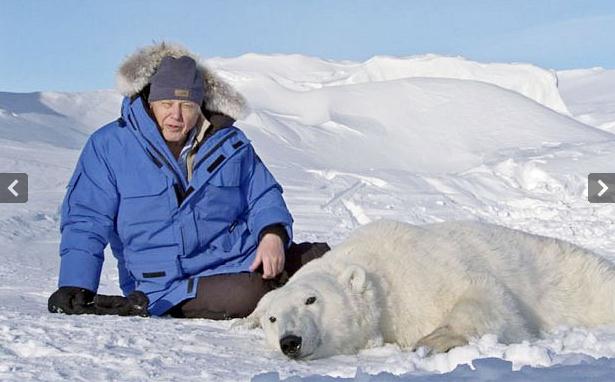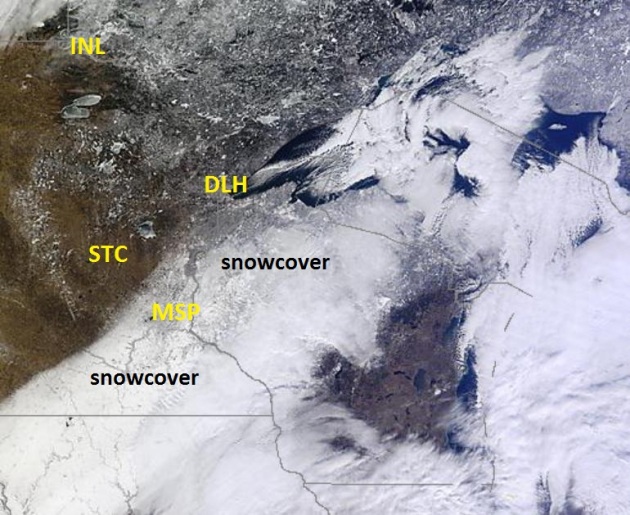
Pipe-rupturing cold? At last report the Twin Cities and Rochester reported 2" snow on the ground, with only a trace at St. Cloud. Snow is a good insulator, and a lack of snow on the ground over much of western and central Minnesota may increase the risk of pipe-breaks through Friday morning as highs hold in the teens, with nighttime lows dipping below zero. If you live in an area prone to rupturing pipes you may have some issues over the next 36 hours. Image courtesy of NASA's Modis "Terra" satellite.
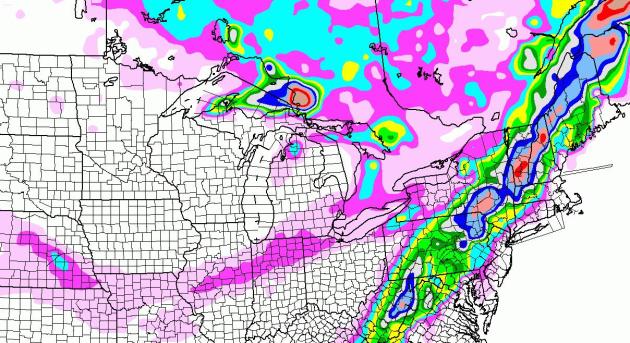
Snow Potential. The NAM model through Saturday night at midnight shows significant accumulation from the Poconos of Pennsylvania into the Green and White Mountains of New England, some 8-16" amounts. The major urban centers will see just rain today, the heaviest snowfall amounts reserved for the Appalachians, Catskills and Adirondacks. As much as 6-10" of lake effect snow is possible downwind of Lake Superior, over the U.P. of Michigan.
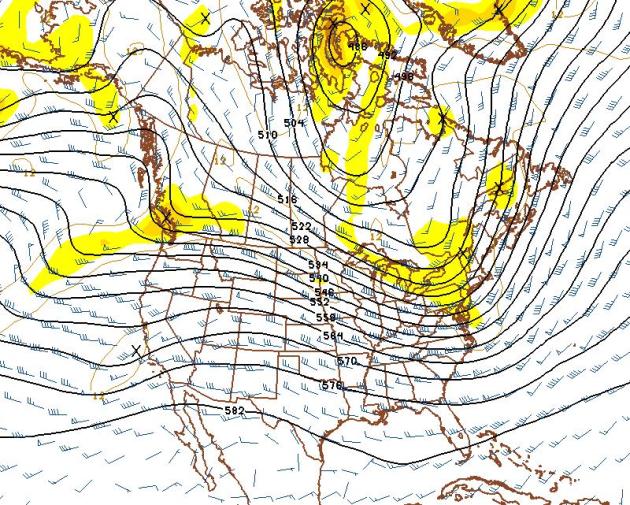
And then the other shoe (boot) may drop in late December/January:
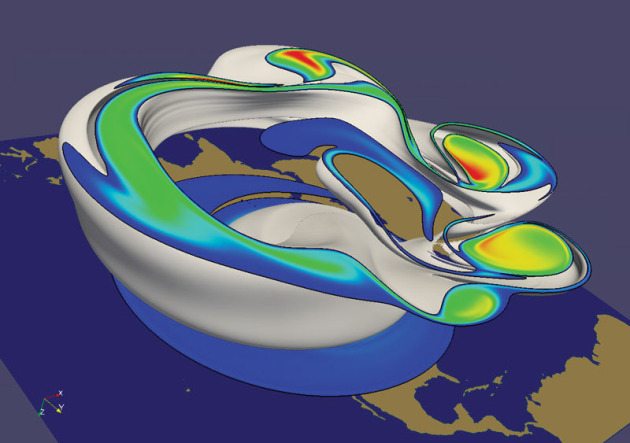
- warning - warning - warning - warning - warning - mental health alert - warning - warning - danger Will Robinson.....
What A Difference A Year Makes. Let me offer a gentle reminder before you have a coronary: the maps below are from December 10-11 of 2010:
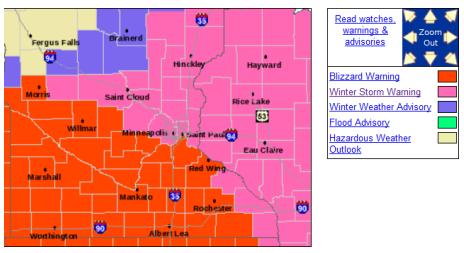
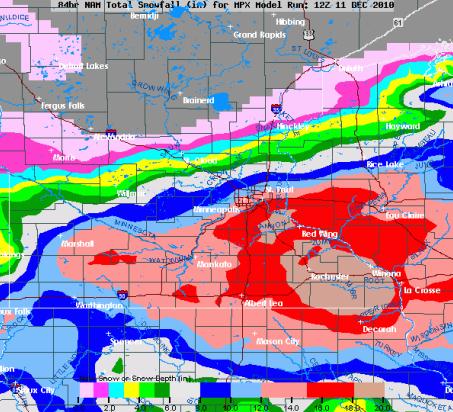
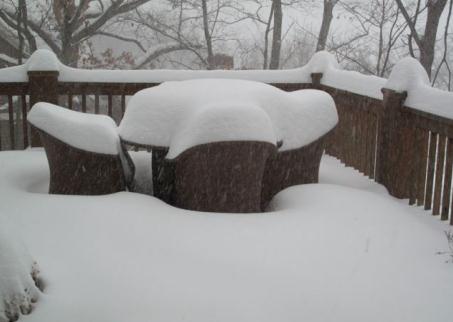
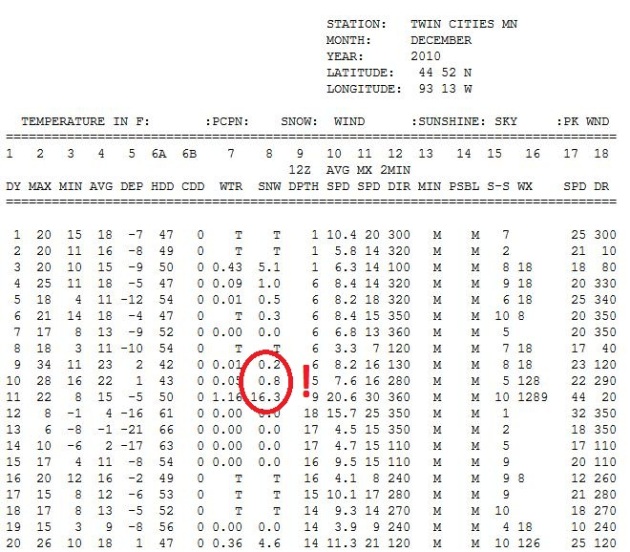
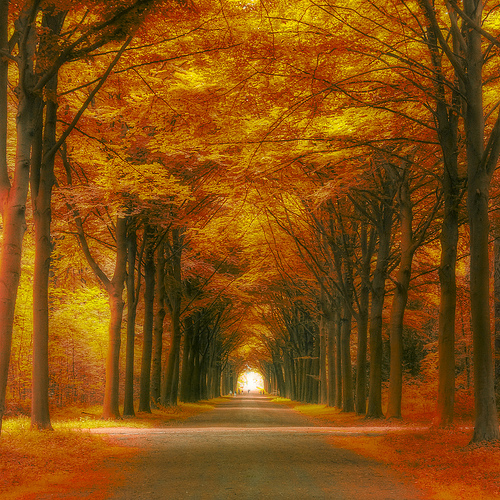
A Mild Autumn For The USA. Here's a good fall weather summary from NOAA: "November and the September-November autumn season were warmer than average across the contiguous U.S., according to scientists at NOAA’s National Climatic Data Center (NCDC) in Asheville, N.C. Precipitation totals across the country were also above average during November, but near the long-term average for the autumn season. The average U.S. temperature in November was 44.3 degrees F, or 1.8 degrees F above the 1901-2000 long term average, while the average autumn temperature was 55.5 degrees F or 1.3 degrees F above average. Precipitation averaged across the nation during November, was 2.33 inches or 0.21 inch above average. The severity of drought conditions lessened across northern Texas, where near-normal precipitation was observed for the month, but in other locations throughout the state, drier-than-normal conditions meant drought conditions remained unchanged. This monthly analysis, based on records dating back to 1895, is part of the suite of climate services NOAA provides."

Hurricane Forecasters Give Odds For 2012 Season. Yes, it seems a bit early to be looking (way) over the horizon to 2012's hurricane season. I thought this was an interesting article from the Palm Beach Post. Here's an excerpt: "The team predicted:
• A 30 percent chance of an above-average THC and a “significant” El Niño, reducing hurricane activity to about 75 percent of the average hurricane season — eight to 11, three to five, and one to two."

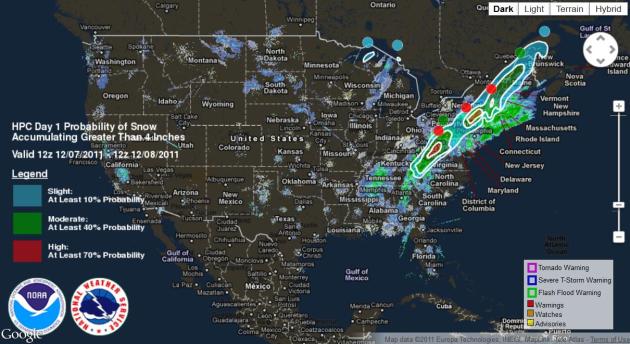
Bookmark-Worthy Doppler? Here's a good, new national radar composite - you can zoom into specific radar sites and overlay other NOAA products, watches, warnings and advisories. Click here to see the link.
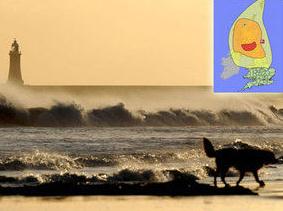
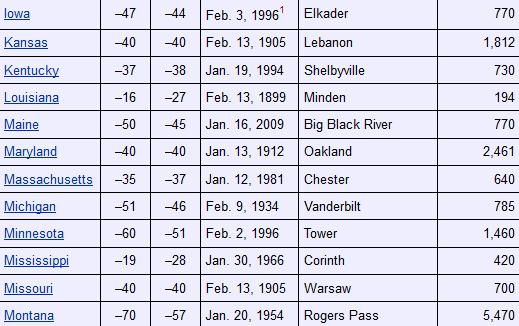
Coldest Temperatures, State By State. Yes, it's cold out there, but we're not even close to record territory. The all-time record low for Minnesota is -60 F, on Groundhog Day, Feb. 2, 1996. I remember that outbreak - taking a deep breath actually hurt - felt like breathing in acid, an amazing sensation. See all the state records, courtesy of infoplease.com.

- "Be generous with praise. Everyone wants it and it’s one of the easiest things to give. Plus, praise from the CEO goes a lot farther than you might think. Praise every improvement that you see your team members make. Once you’re comfortable delivering praise one-on-one to an employee, try praising them in front of others.
- Get rid of the managers. Projects without project managers? That doesn’t seem right! Try it. Removing the project lead or supervisor and empowering your staff to work together as a team rather then everyone reporting to one individual can do wonders. Think about it. What’s worse than letting your supervisor down? Letting your team down! Allowing people to work together as a team, on an equal level with their co-workers, will often produce better projects faster. People will come in early, stay late, and devote more of their energy to solving problems.
- Make your ideas theirs. People hate being told what to do. Instead of telling people what you want done; ask them in a way that will make them feel like they came up with the idea. “I’d like you to do it this way” turns into “Do you think it’s a good idea if we do it this way?”
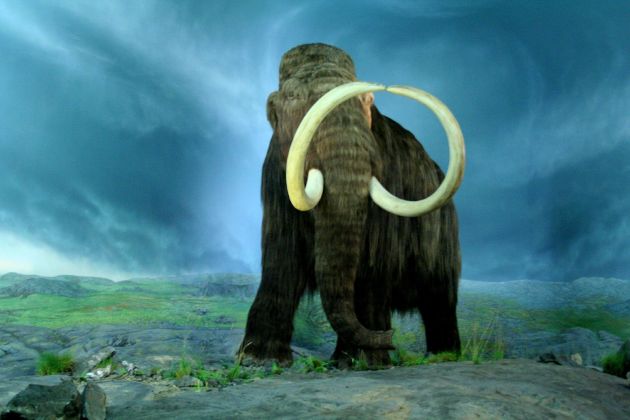
Mammoth Cloning "Within 5 Years." I did a double-take too. Neatorama.com has the story; here's an excerpt: "What’s been missing is woolly mammoth nuclei with undamaged genes. Scientists have been on a Holy Grail-type search for such pristine nuclei since the late 1990s. Now it sounds like the missing genes may have been found. In an odd twist, global warming may be responsible for the breakthrough. Warmer temperatures tied to global warming have thawed ground in eastern Russia that is almost always permanently frozen. As a result, researchers have found a fair number of well-preserved frozen mammoths there, including the one that yielded the bone marrow." (image above courtesy of Wikipedia).


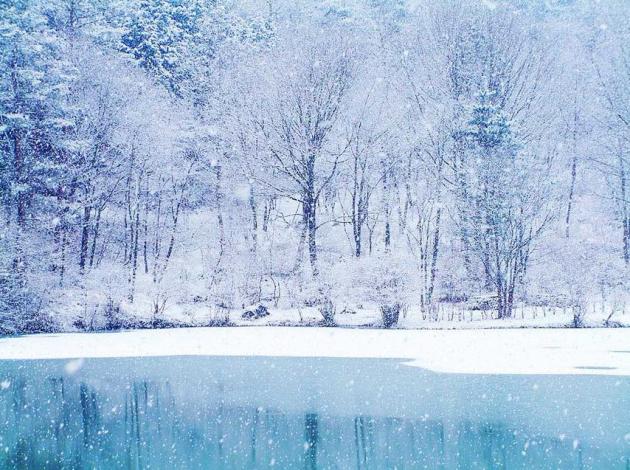
Quiet Desperation
"Most men lead lives of quiet desperation and go to the grave with the song still in them," wrote Henry David Thoreau. That quiet desperation thing applies to meteorologists. You're only as good as your last forecast. "How did you do on the last storm, Paul?"
Accuracy for the 24 hour "tomorrow" forecast is 87% It hasn't improved in 30 years, in spite of supercomputers and Doppler radar. Its probably human nature for people to remember the 13% of the time we're wrong. It's more fun reminding us (gently of course) when we blow it. BTW, the long range outlook improves by roughly 1% a year.
Climate Stories...
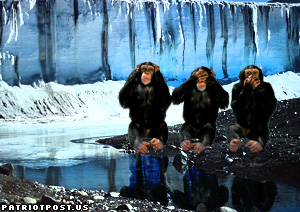
Why We Resist The Truth About Climate Change. I thought this was a particularly profound and insightful paper, focusing on why many conservatives have a virulent reaction to climate change - because of what it implies going forward, the amount of government regulation and intervention in the markets it is going to eventually require. I can see their point. Checking runaway carbon in the atmosphere will almost certainly require significant government intervention - there's no evidence the markets can "self-correct" here, little chance that entreprenurial renewable energy alternatives can provide all the (carbon-free) energy required to sustain growth, and keep us from falling back into a massive, global recession. I understand all that, and this paper helped me connect the dots. Climate change threatens core beliefs for many who wish to see smaller government and fewer day to day interventions or regulations in the markets. Clive Hamilton at the Museum of Natural Sciences in Brussels wrote this paper in 2010. It's must-read: "Let me begin with a pregnant fact about United States’ voters. In 1997 there was virtually no difference between Democratic and Republican voters in their views on global warming, with around half saying warming had begun. In 2008, reflecting the accumulation and dissemination of scientific evidence, the proportion of Democratic voters taking this view had risen from 52 to 76 per cent.2 But the proportion of Republican voters fell from 48 per cent to 42 per cent—a four percent gap had become a 34 per cent gap. What had happened? The opening of the gulf was due to the fact that Republican Party activists, in collaboration with fossil fuel interests and conservative think tanks, had successfully associated acceptance of global warming science with “liberal” views.3 In other words, they had activated the human predisposition to adopt views that cement one’s connections with cultural groups that strengthen one’s definition of self.4 In the 1990s views on global warming were influenced mostly by attentiveness to the science; now one can make a good guess at an American’s opinion on global warming by identifying their views on abortion, same-sex marriage and gun-control."

Flip-Flop: Jon Huntsman and Newt Gingrich Go Skeptical On Climate Change. From a Time Magazine blog: "There was a time—not that long ago—when climate change was almost a bipartisan issue. Both Barack Obama and John McCain said on the 2008 campaign trail that they were worried about the threat of climate change, and they both had relatively similar carbon cap-and-trade proposals. Seriously, this happened—I’m almost positive that I didn’t hallucinate the whole thing. But 2012 will obviously be a very different campaign, and today to be considered a Republican Presidential candidate in good standing, you need to repudiate the informed opinion of nearly all climate scientists and pronounce yourself a skeptic."
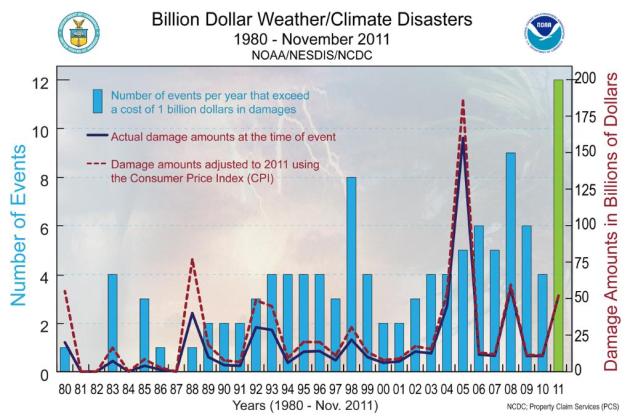
12 Different Billion Dollar Disasters In 2011. We set a new record this year: 12 separate billion-dollar disasters this year. The previous record was 9 billion dollar disasters in 2008. Is there a trend here or is it my imagination? True, more people than ever are living in vulnerable areas, close to rivers and the Atlantic/Gulf coast, more vulnerable to hurricanes and coastal flooding. But beyond that something else is going on - a 4 to 5% increase in water vapor (result of a warmer atmosphere evaporating more water vapor from the oceans) is sparking more extreme weather events. Graphic courtesy of NOAA.

Climate Changes Faster Than Species Can Adapt. Here's a story from Newswise and The Jerusalem Post: "The ranges of species will have to change dramatically as a result of climate change between now and 2100 because the climate will change more than 100 times faster than the rate at which species can adapt, according to a newly published study by Indiana University researchers. The study, which focuses on North American rattlesnakes, finds that the rate of future change in suitable habitat will be two to three orders of magnitude greater than the average change over the past 300 millennia, a time that included three major glacial cycles and significant variation in climate and temperature. “We find that, over the next 90 years, at best these species’ ranges will change more than 100 times faster than they have during the past 320,000 years,” said Michelle Lawing, lead author of the paper and a doctoral candidate in geological sciences and biology at IU Bloomington. “This rate of change is unlike anything these species have experienced, probably since their formation.”

Photo credit above: "Katharine Hayhoe speaks about climate change to students and faculty at Wayland Baptist University in West Texas. She's a climatologist and an evangelical Christian. (Geoffrey McAllister, Chicago Tribune / November 9, 2011)."
